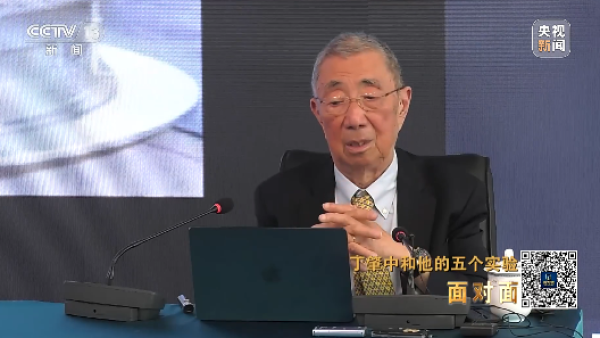
Last week, the "Face to Face" column went to Guangzhou to interview Mr. Ding Zhaozhong.
Before the interview, we learned two pieces of information. One is that he will leave immediately after the interview to go to the neutrino laboratory for investigation. The other is that he will be in Switzerland at a fixed time every day during the entire trip. The team spoke on the phone to discuss ongoing experiments.
What is the experiment for? What is the use?
Ding Zhaozhong has been engaged in high-energy physics experiments for a long time, which means that there are very few people who can discuss professional issues with him, or just ask him professional questions.
Reporter: Has anyone asked you what the experiment is for? What is the use? What's the use? Has this question been asked over and over again?
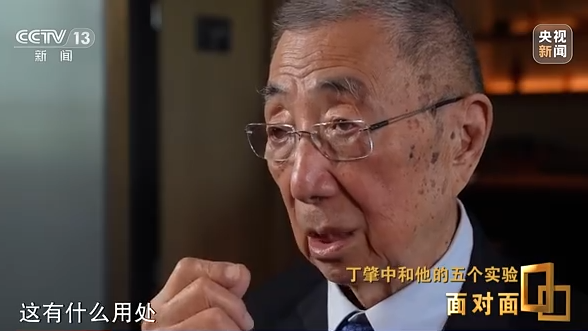
Ding Zhaozhong: This question is often asked. For example, in the 1930s, we were studying atomic physics or quantum mechanics. At that time, some people asked why we were doing this? This is completely abstract, and it is now used in quantum computers for communication, which is completely the basic physics at that time. One of the most important discoveries around 1900 was X-rays. At that time, some people asked what X-rays were for? It is now used in medicine for various research purposes. In the 1950s, the most advanced science was nuclear physics. At that time, some people asked what is the use of this? Why spend so much money researching this? Now for energy. It may take 30 to 50 years from discovery to application, and when it can be applied, it will change people's entire knowledge. It is a natural phenomenon to ask this question, but if you want to be clear, people want to study this mainly because of curiosity. , and some results change a person's entire life.
"Professor size is meaningless to me, don't blindly follow the conclusions of experts when doing experimental physics"
In recent years, when Ding Zhaozhong shared his experience on different occasions, he used roughly the same text structure, that is, the five important experiments and the insights brought to him by each experiment, the insights he gained from his first important experiment It is "don't blindly follow the conclusions of experts when doing experimental physics".
Reporter: The first important experiment you did was whether electrons have a radius. It was an experiment made by a very authoritative professor at that time?
Ding Zhaozhong: Yes, two schools.
Reporter: You didn’t graduate long after your Ph.D., how could you question the experiment made by such a big professor?
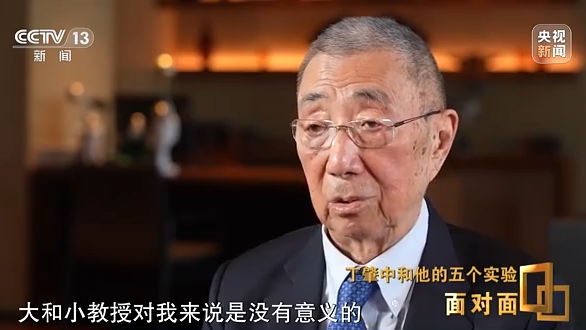
Ding Zhaozhong: Big professors and small professors are meaningless to me. I feel that quantum mechanics and quantum electrodynamics are very complete sciences, because many people have checked and speculated that they are all right, but suddenly two experiments say it is wrong, so I feel very strange, I just thought of a way to check.
Experiments require money and laboratories. In the United States, Ding Zhaozhong did not find a laboratory willing to cooperate with him. In 1965, he gave up his career at an American university and went to the newly built Electron Synchrotron Institute in Germany to redo the electron-positron pair experiment. Eight months later, his experiments proved: quantum electrodynamics is correct, electrons have no volume.
Reporter: You made this experiment that overthrew a famous professor at a famous university. Where did you go to talk about it? If you are a small person trying to overthrow a big man, how do you overthrow him?
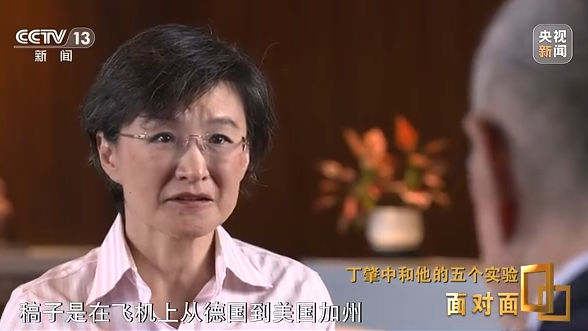
Ding Zhaozhong: I forgot which month it was now. The International High Energy Physics Conference is held every two years. The director of the German National Research Office wrote a letter, saying that we are coming and we have results to be announced to everyone, so I took it with me. went. There were no computers at that time, and the manuscript was written on the plane from Germany to California, USA. The first report may be from Harvard University, and the second report may be from Cornell University. Both of them prove that electrons have a radius. The person who organized the meeting said that there is no time now, but I will give you 10 minutes.
Reporter: How much time did you give them?
Ding Zhaozhong: About an hour. I will briefly introduce it in 10 minutes. How is this experiment done? How about proofreading? How to check?
Reporter: Can you convince others?
Ding Zhaozhong: I don't know, probably others believe it.
Reporter: What foundation has this experiment laid for you?
Ding Zhaozhong: Gradually people know who I am, and gradually people start to support me.
"Don't change your interests just because the majority is against"
In the 1970s, Ding Zhaozhong was engaged in a series of experiments on photons and heavy photons. These experiments are "unpopular" in the physics community: in the eyes of theoretical physicists, it is of little significance to search for high-quality heavy photon physics; in the hearts of experimental physicists, no one can complete such difficult experiments.
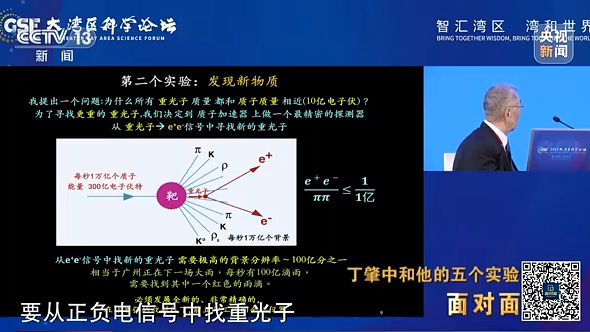
Ding Zhaozhong: Finding heavy photons from positive and negative electrical signals requires a very high background resolution, which is equivalent to when it rains in Guangzhou, there is a red among the 10 billion chairs every second, you need to use this red To find out, all new instruments that can work normally under very strong radiation must be developed, so this experiment is not welcomed by the physics community.
In this experiment that both theoretical physicists and experimental physicists are not optimistic about, there is a laurel of the Nobel Prize in Physics hidden, but to wear this laurel, the first thing Ding Zhaozhong has to do is to find someone who is willing to share with him. Collaborative lab.
The Brookhaven National Laboratory of the United States accepted Ding Zhaozhong's experimental plan. In 1974, this experiment allowed Ding Zhaozhong to find the fourth type of quark, the J particle. This discovery overturned the previous theory that the world was only composed of three kinds of quarks, and opened up a new realm for human beings to understand the microscopic world.
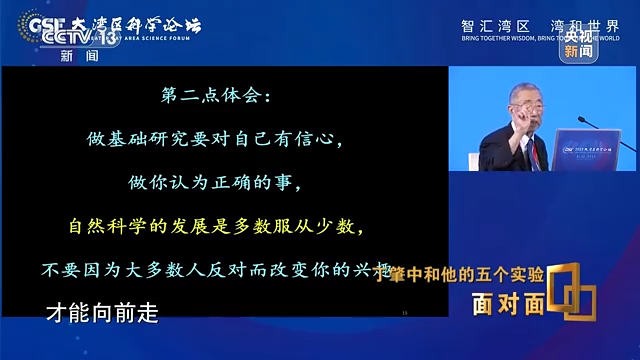
Ding Zhaozhong: So the second experience is that when doing basic research, you must have confidence in yourself and do what you think is right. The development of natural science is that the majority obeys the minority, and the minority can only move forward after overthrowing the ideas of the majority. Never change your interest just because the majority is against it.
In 1976, Ding Zhaozhong won the Nobel Prize in Physics for this. When accepting the award, he insisted on using Chinese to give a speech, becoming the first person in the history of the Nobel Prize to use Chinese to make an award speech.
"You learn something new when experiment doesn't match theory"
In 1979, the third important experiment of Ding Zhaozhong's academic career brought him the inspiration that "as an experimental scientist, one must be fully prepared for unexpected phenomena." The original goal of this experiment was to continue to find the radius of the electron, but the gluon was unexpectedly discovered.
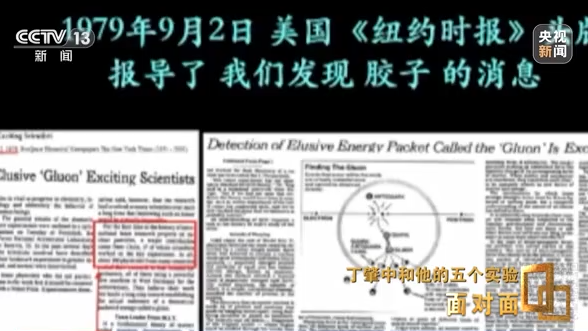
On September 2, 1979, the New York Times reported the new discovery on the front page. The report specifically mentioned that "27 Chinese scientists participated in this experiment." This is the first time for Chinese scientists to participate in international cooperation after the reform and opening up. Many of these scientists are from the Institute of High Energy Physics, Chinese Academy of Sciences. After that, the L3 experiment led by Ding Zhaozhong began, involving more than 600 scientists from 19 countries including China.
The L3 experiment was carried out at CERN. This experiment took Ding Zhaozhong 20 years. The experiment found that within the current energy range, there are three different electrons, three different neutrinos and six different quarks in the universe . Electrons and quarks have no volume.
Inspiration from the L3 experiment to Ding Zhaozhong: To organize international activities, we must choose the most important topics in science to arouse the interest of participating countries. Countries that have made great contributions must be recognized first, so that they can receive long-term priority support from participating governments. But going back to the roots, he still attributes the success of international cooperation to people's interest in physics.
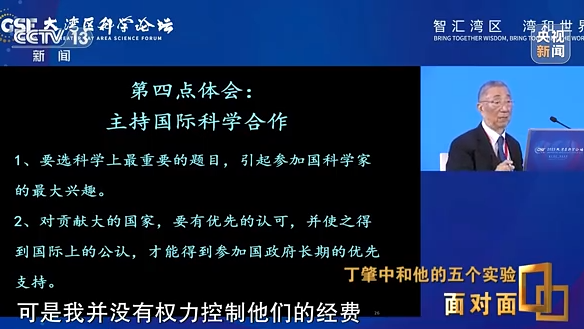
Ding Zhaozhong: International organizations are very large and have many countries, but I do not have the right to control their funding, nor do I have the ability, so they are willing to do this because they are interested in this physics.
make the impossible possible
Beginning in 1994, Ding Zhaozhong, who was about to turn 60, launched the fifth important experiment in his physics career. He wants to put a magnetic spectrometer into space to find the secrets of antimatter, dark matter and cosmic rays.
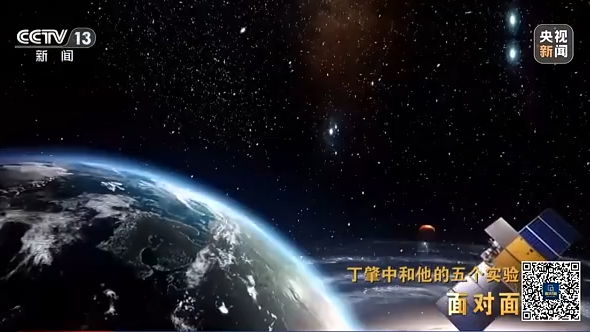
Ding Zhaozhong: Many people say that this is an impossible experiment, that it is impossible for human beings to put magnets in the sky. Because the magnet is placed in the sky, just like the compass used by the Chinese, one end will point north and the other end will point south, so the space shuttle or space station will soon lose control, so this is absolutely impossible.
Reporter: Who said that?
Ding Zhaozhong: Many people said that this is a very common phenomenon, but we made a magnet to prevent it from turning.
The cooperation of many countries has created the AMS, which is the Alpha Magnetic Spectrometer. In 1998, the "Discovery" space shuttle flew AMS-01 for 10 days and collected 100 hours of data, which proved the feasibility and superiority of space detection of high-energy particles. Ding Zhaozhong began to work on the grand plan of the Alpha Magnetic Spectrometer AMS-02: a cost of 2 billion U.S. dollars, with the participation of 600 scientists from 60 research institutions in 16 countries, using powerful superconducting magnets, installing 7 precision detectors, and passing through the space shuttle Installed on the newly built International Space Station.
On May 16, 2011, the US space shuttle Endeavour, carrying the Alpha Magnetic Spectrometer that China participated in, was launched from the Kennedy Space Center in Florida. When the Alpha Magnetic Spectrometer starts up, a cascade of data streams to CERN in an instant. It is these data that determine Ding Zhaozhong's work status for nearly 20 years: always pay attention to the alpha magnetic spectrometer in space.
Reporter: What time did you get up this morning?
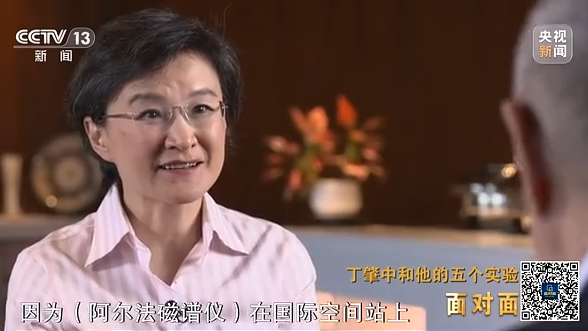
Ding Zhaozhong: After 7 o'clock. Because the Alpha Magnetic Spectrometer is on the International Space Station, orbiting the earth every 93 minutes, the speed is very fast, and every hour is different, so someone has to watch it every hour and every minute. What is the reaction? I have reached an agreement with everyone, and I have to tell me anything important, so I didn’t understand at first. After arriving in space, there are no Saturdays, Sundays, New Years, and Christmas. I am imagining anytime, anywhere, and there may be mistakes. ? Where is the error? If you know it, you can deal with it. If there is an error in a certain instrument, if you don’t know it, then your result will be wrong.
Reporter: If the alpha magnetic spectrometer has been working on the space station since 2011?
Ding Zhaozhong: This year is almost exactly 12 years.
Reporter: In the past 12 years, a lot of data has been recycled every day, every hour, and every minute. For you, do you pay attention to it all the time, or as you said, you only pay attention to something important.
Ding Zhaozhong: Pay attention to it all the time.
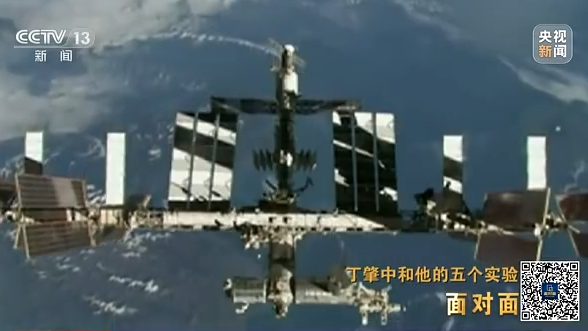
Reporter: You said that it may take 30 to 50 years for basic research to be really useful. We will start counting from 2011. If this experiment reaches the sky, it may take a long time to produce results. Even if you live to 120 At this age, you have to say goodbye to this world one day, you may not see the result, do you feel regretful?
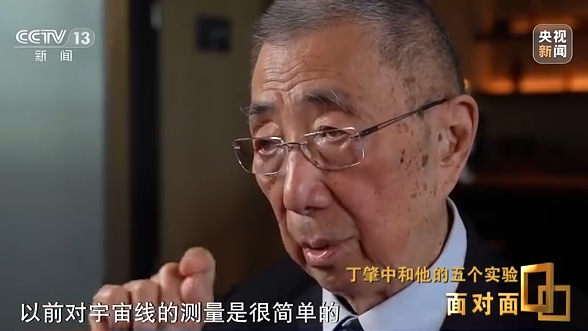
Ding Zhaozhong: I don't regret it at all. For example, if you want to go to Mars or the moon, there will be a lot of cosmic rays after you leave the atmosphere and the earth's magnetic field. The measurement of cosmic rays in the past was very simple. As a result, I now find that cosmic rays vary greatly every hour, every day, and every year. If people are going to live on Mars for a long time, they must understand what cosmic rays are? This is knowledge that is available today.
Reporter: This is your most convincing answer to the question "what's the use" from the outside world?
Ding Zhaozhong: I don't need convincing.
"Failure is when you turn out to be wrong"
Ding Zhaozhong: As far as I am concerned, my experiment is the most important thing for me. My daughter and my son used to ask me, being in the lab all day and night, and I said because I was so interested in it.
Reporter: Have you ever failed an experiment in your life?
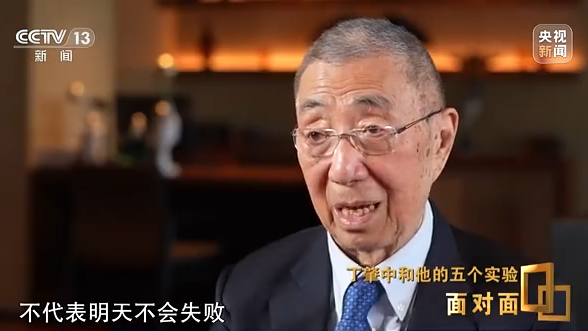
Ding Zhaozhong: Not yet. It doesn't mean that we won't fail tomorrow or the day after tomorrow.
Reporter: What does failure mean?
Ding Zhaozhong: The so-called failure means that your result is wrong. I have always told all our colleagues that our experiment took 20 years, a lot of money and manpower, and it is probably impossible for anyone to do this kind of experiment in the next 20 or 30 years, so we must do it right. Because no one can directly verify me, it will definitely affect the development of physics, so many results have not been published until now. The reason for not publishing is that I have doubts, either doubts or I think I should check it carefully.
"A scientist must break the concept of the ancients in order to move forward"
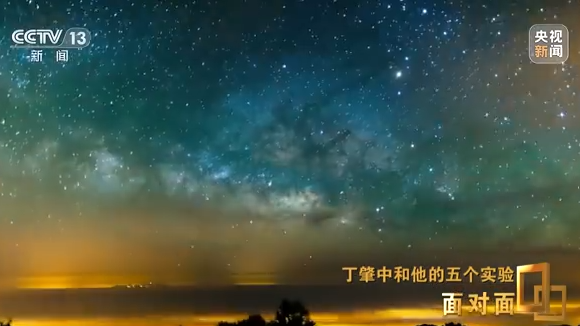
Since 1977, Chinese scientists have been participating in Ding Zhaozhong's experimental projects. In an interview with the media, he said that what he values most is the imagination of scientists.
Reporter: You help China train some physicists?
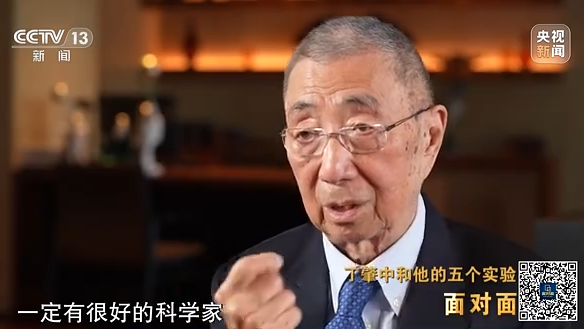
Ding Zhaozhong: It cannot be said to help China, because China accounts for 1/5 of the world's population, so there must be good scientists.
Reporter: Is that the case?
Ding Zhaozhong: Yes.
Reporter: You just said that the most different thing is to have imagination?
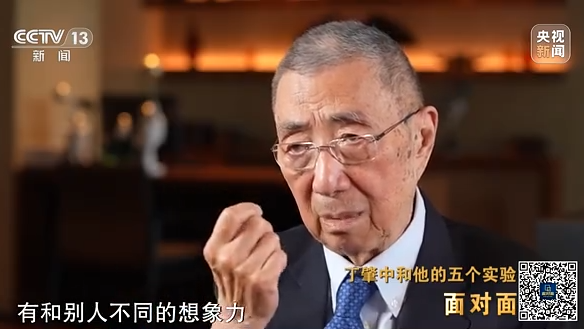
Ding Zhaozhong: I have imagination, not ordinary imagination, I have a different imagination from others.
Reporter: Where did it come from? If I want to cultivate this thing, can I cultivate it?
Ding Zhaozhong: Personally, I may know a lot of scientists. Maybe choosing good parents is a very important reason, and I don't know anything else.
Reporter: Can reading inspire one's own potential, the potential of imagination?
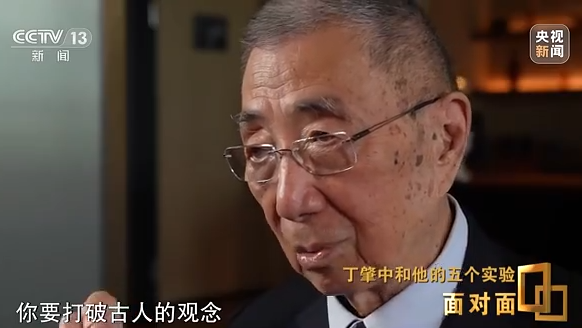
Ding Zhaozhong: The progress of physics is to break the concepts of the predecessors. I have had different opinions with my father since I was very young. My father often said that the ancient sages and sages are of course very important. But from a scientist For example, you have to break the concept of the ancients in order to move forward.
Reporter: I can only say that on the one hand, you are humble; on the other hand, I really envy you, you have chosen a good pair of parents. Thank you, I wish you a very pleasant and smooth scientific journey today!
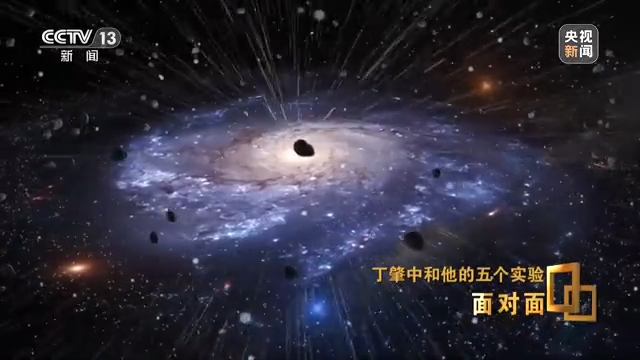
On May 23, shortly after finishing the "Face to Face" interview, Ding Zhaozhong and his party appeared at the Jiangmen Neutrino Laboratory located 700 meters underground. This was the last stop of his trip to China. The experiment to be launched here is another effort by human beings to explore the unsolved mysteries of the universe driven by curiosity, and it is another expansion of basic research and human knowledge.
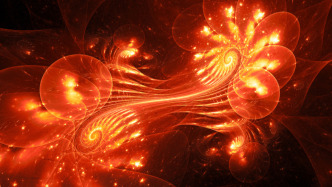
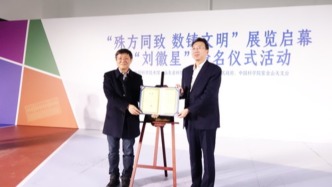
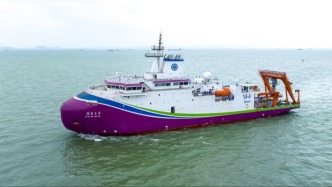
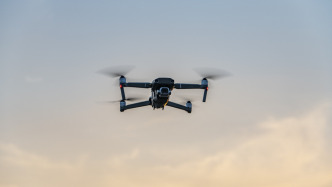
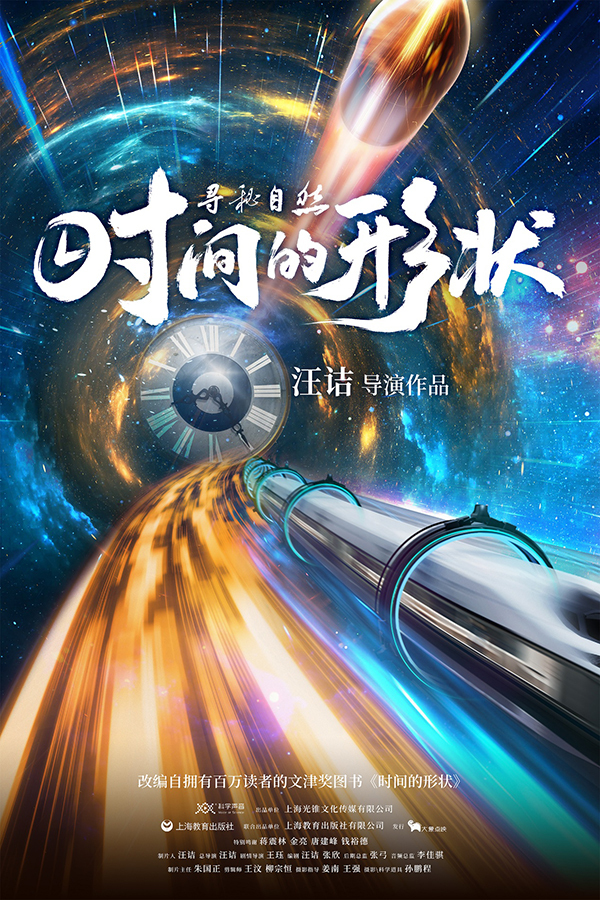
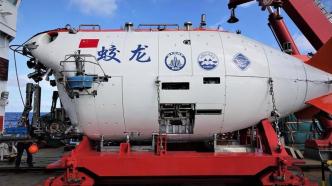
Comments